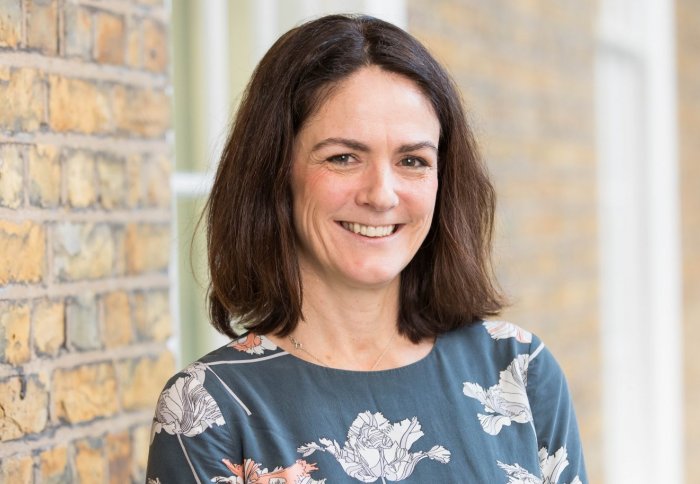

Professor Mary Wells has been appointed Lead Nurse for Research at Imperial College Healthcare NHS Trust.
Mary is a cancer nurse with a clinical academic background in health services research within oncology. In this new role, her key responsibilities are to provide professional leadership and support to research nurses and research practitioners across the trust. Another aspect of Professor Wells’ role is to work with strategic partners such as Imperial College London to grow the capacity and capability of nurses and midwives to become more research aware, ready and active.
Maxine Myers caught up with Professor Wells following her appointment to find out more about her plans.
1) What does your role involve?
I have been appointed to lead research and clinical academic careers in nursing and midwifery. Imperial is an incredibly research rich environment, but the work done by nurses, midwives and research practitioners is sometimes hidden. My role involves supporting these staff groups to develop their research careers and enhance their contribution to research at ICHT, as well as to encourage and facilitate nurses and midwives to become research leaders. This includes being more aware of research happening across ICHT, supporting patients who are taking part in research, and using findings from studies in their practice.
2) What aspects of the role attracted you?
I was excited by the opportunity of working at a strategic level within a leading NHS Trust, to influence the development of clinical academic careers in nursing and midwifery. I have been working in the Higher Education sector for the last 14 years and wanted to be closer to practice, where I felt I could make more of a difference.
Over my career I have held a number of joint posts between universities and NHS trusts, and I believe that real change will only happen from within the NHS, by engaging staff directly in research, by showing the contribution that nurses and midwives can make and by discussing and implementing research findings in practice. Also, when you’re embedded within an NHS setting you see the pressures, the challenges and the competing demands facing clinical staff. Research doesn’t happen in a vacuum and it is important to understand the realities of clinical practice in order to improve the quality and relevance of research.
3) What are your initial plans?
Initially, I am keen to establish relationships across all divisions of ICHT, and with other key partners, including the College, to understand where I can best make a difference. I would like to bring different groups together to generate research ideas, discuss findings, and find ways to bring research into everyday practice. I plan to develop a research resource on the Trust’s internal website, providing useful signposts and advice as well as a forum for disseminating the excellent work that is going on at Imperial. I also want to establish mechanisms through which research nurses, midwives and research practitioners across our hospital sites can share good practice and be better integrated into the organisation.
Another goal is to work with others in the Trust to develop stronger career structures for clinical academics, research nurses, midwives and practitioners. This is a national agenda and I will engage with external groups to ensure that Imperial is at the forefront of debate. I would particularly like to find ways of enabling nurses and midwives to continue to grow their research careers after a PhD, as it is often difficult for them to do so.
4) Why is it important for midwives and nurses at the Trust to engage in research?
Nurses are the largest group that make up the clinical workface in the NHS and they engage with patients on a regular basis. They contribute to patients’ experience of care, give patients the opportunity to get involve in research, which could help improve their outcomes, and they play a really important part in providing patient care that is based on the best evidence from research. Nurses and midwives have a different perspective on the clinical problems we are facing and how we can address them. They can do excellent patient-centred research which focusses on the things that matter to patients and their families.
5) How has your research helped your clinical practice and career?
Like many clinical nurses, I was always asking questions and looking for ways to do things better. I was lucky in that I did an honours degree at the same time as my Registered Nurse qualification, and this gave me the opportunity to undertake a research project on multi-professional teamwork, very early in my career. I realised that I enjoyed academic debate, trying to make sense of difficult problems, using evidence and writing to communicate ideas effectively.
Research has made an important contribution to my clinical practice and to my career since that point. The best and most relevant research questions come from clinical practice, and I believe I have been most productive as a researcher while working closely with patients and other healthcare professionals. Understanding research and being able to talk about it has definitely opened doors, enabling me to work collaboratively with academics as well as clinicians at all levels, and seek opportunities for funding and dissemination, with the aim of improving patient care.
6) What would you say to staff at the Trust who are interested in a career in research?
There are many different ways to pursue a research career and Imperial is a great place to do it - here there is the ambition, infrastructure and support to make it happen. People are often daunted by the idea of getting into research, and get disheartened if they are knocked back the first time they apply for a research job, grant or try to write an article. Often this is because they try to do it on their own.
Research is a collaborative activity and you really do need a team around you. My advice would be to discuss your ideas with colleagues of all disciplines, managers and patients, find someone more experienced than you in research, get in touch with the Clinical Academic Training Office (CATO) and, if you are a nurse, midwife or research practitioner, talk to me. I would also advise staff to familiarise yourself with the opportunities on offer through CATO, the Academic Health Sciences Centre (AHSC) and the NIHR, and with the research evidence around your area of interest. Find out what clinical research is going on in your area and how your patients are involved – research matters to the NHS and everyone has a part to play.
Article text (excluding photos or graphics) available under an Attribution-NonCommercial-ShareAlike Creative Commons license.
Photos and graphics subject to third party copyright used with permission or © Imperial College London.
Reporter
Maxine Myers
Communications Division

Contact details
Tel: +44 (0)7561 451 724
Email: maxine.myers@imperial.ac.uk
Show all stories by this author
Leave a comment
Your comment may be published, displaying your name as you provide it, unless you request otherwise. Your contact details will never be published.




Comments
Comments are loading...